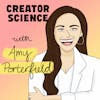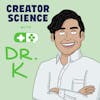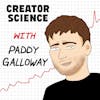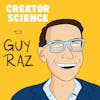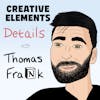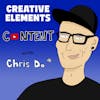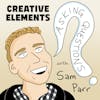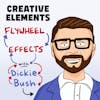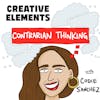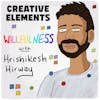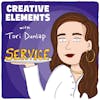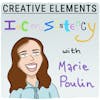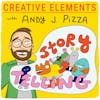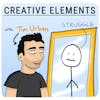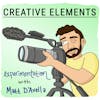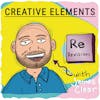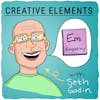
#73: Taylor Schulte – Creating a winning content marketing strategy for a professional services business
Play EpisodeTaylor Schulte is the founder of Define Financial, which manages over $120 million in assets and specializes in retirement & tax planning for people over age 50.
Taylor Schulte is the founder of Define Financial, which manages over $120 million in assets and specializes in retirement & tax planning for people over age 50.
He's been named been recognized as a “Top 40 Advisor Under 40” by InvestmentNews and named “The #2 Independent Advisor in the U.S.” by Investopedia.
Taylor hosts Stay Wealthy Retirement, a Forbes Top 10 Retirement podcast.
And in 2020, Taylor co-founded Advisors Growing as a Community, or the AGC. The online community has more than 150 members and generates more than $225,000 in annual recurring revenue.
In this episode, we talk about how Taylor found his initial clients, the short-term and long-term marketing strategies he’s put into place, how he literally structured his client-facing website, how he leverages press mentions, and why an abundance mindset has helped him stand out in a competitive field.
Visit Taylor Schulte's website
Visit the Define Financial website
Follow Taylor Schulte on Twitter
Full transcript and show notes
***
ABOUT JAY CLOUSE
Subscribe to my weekly newsletter
Enroll in my podcasting workshop
Enroll in my course on podcasting, Podcast Like The Pros
***
LISTENER SUPPORT
Join our community on Facebook
Support this show through Buy Me A Coffee
***
SPONSORS
Try Podia and save 15% for life as a Creative Elements listener
Start your free trial of SavvyCal and get your first month free using promo code ELEMENTS
Get a free month of Blinkist Premium
***
PODGLOMERATE NETWORK
This show is a part of the Podglomerate network, a company that produces, distributes, and monetizes podcasts. We encourage you to visit the website and sign up for our newsletter for more information about our shows, launches, and events. For more information on how The Podglomerate treats data, please see our Privacy Policy.
Since you're listening to Creative Elements, we'd like to suggest you also try other Podglomerate shows surrounding entrepreneurship, business, and careers like Rocketship.fm and Freelance to Founder.
Learn more about your ad choices. Visit megaphone.fm/adchoices
Taylor Schulte 0:00
Every single week, I dedicated one day per week to go and have a conversation, coffee, breakfast, lunch, you know, beer after work with somebody else inside of my industry that was ahead of me to learn from them. And I would go and I would ask them questions and I'd have a blank notepad, no take notes, I would just digest it, and I would do it again every single week.
Jay Clouse 0:20
Welcome to Creative Elements, a show where we talk to your favorite creators and learn what it takes to make a living from your art and creativity. I'm your host, Jay Clouse. Let's start the show.
Hello, my friend. Welcome back to another episode of Creative Elements. You know, I was thinking I'm super curious to know what it is people do while they listen to the show. I listen to a lot of shows while I'm in a car, while I go for a run. I love to hear what you are up to literally right now, as you sit here, listening to me hanging out with me for the next hour. Tag me on Twitter or Instagram @jayclouse and let me know what you're doing. I've been in a little bit of a weird mood lately, thinking about conferences and events, is to attend a lot of meetups and events every year from big events like CES in South by Southwest to smaller local meetups. And for a while I was actually really grateful for the break from events. But as time has passed and I felt a little bit more cabin fever, I kind of miss them at times. Events are a great place for serendipity and meeting new people. If you're a business owner working with clients, events are a great place for finding new leads too. One of the last events I went to before the pandemic was an experience called Capital Camp. It was a conference for people mostly in the world of finance but I weaseled my way in because I wanted to meet some of the really smart people that I follow on Twitter. And one of those guys that I met is today's guest Taylor Schulte.
Taylor Schulte 1:57
Out of school, 22 years old, I knew I wanted to work in the world of finance. I didn't really know what that meant but I got a great job very by a very large brokerage firm that we all know by name. I got my feet wet there, had some great mentors and I really just kind of like drink the Kool Aid, like whatever somebody told me was true, I just accepted it and ran with it. I say that because when I eventually started my firm in 2014, I had to kind of unwind and kind of retrain and relearn a lot of things that were like embedded in me.
Jay Clouse 2:29
We'll talk about Taylor's firm define financial here in a minute. But first, I wanted to set the stage because I think Taylor's story is a lot like the story I hear from creatives all the time, he started working within a company, which may have initially felt like a dream job. But soon, he started to feel limited.
Taylor Schulte 2:46
The biggest challenge for me that I didn't really know at the time, was that that corporate environment didn't really allow any creative space for me, you know, I had a job to do, which was to bring in money and help make the firm more money and that was it. And I was very confined, you know, there was something like 20,000 advisors in the country that worked for this firm. And so they couldn't just, you know, let us do whatever we wanted. And so I didn't really have a creative outlet. It was like, hey, you know, here's five things that you can do to do your job and bring in new business and that's it. And I didn't really know my passion for marketing at that time or, you know, wanting to be a creator. But now looking back, I just, I think I felt really, really trapped. And when I started my firm, I had this kind of newfound freedom to kind of let my freak flag fly a little bit and find my own creative space and that's awfully obviously taken me on a whole new journey.
Jay Clouse 3:40
Taylor and I met on a shuttle at Capital Camp heading to one of the different special events and we connected pretty quickly over podcasting. This show didn't exist yet but I was telling him about my other show and he was telling me about the success his retirement podcast called Stay Wealthy was having.
Taylor Schulte 3:59
Welcome to the Stay Wealthy Podcast. I'm your host Taylor Schulte and today I'm kicking off a multipart series on creating a reliable income stream in retirement.
Jay Clouse 4:08
That podcast is actually part of a larger content marketing strategy for Taylor's firm to find financial. And this is a big deal because a lot of creative startup podcast or create content generally, in the hopes of building a flywheel of clients coming to them. It doesn't always work but it's really worked for Taylor.
Taylor Schulte 4:26
Most of our new clients to financial planning firm come through the podcast, we see 30,000 ish downloads per month. We've got clients that are hiring us all over the country that again, we haven't met in person and we've just built that trust with them through a microphone, which is wild to say out loud.
Jay Clouse 4:41
Defined Financial is what is known as a fee only financial planning firm in San Diego, California. Don't worry about that term, we'll actually talk about it in the interview. But what's remarkable about Taylor's business is that he says revenue has grown over 500% since launching in 2014. They now manage $120 million in assets for about 70 families across the country. Taylor has been recognized as a top 40 advisor under 40 by investment news and named the number two independent advisor in the United States by investopedia. And in 2020, Taylor co-founded advisors growing as a community or the AGC is an online community for financial advisors to grow together and my fiancé, Mallory actually manages that community. The AGC cleared six figures of revenue in the first six months more than $120,000. They now have about 150 members, an annual membership is about 15 $100 so that's about $225,000 of recurring annual revenue. These are incredible numbers and I share them to show you what is possible even if you're listening to this and your business is mostly service based revenue today. In this episode, we talk about how Taylor found his initial clients, the short term and long term marketing strategies he's put into place, how he literally structures his client facing website, how he leverages press mentions, and why in abundance mindset has helped him stand out in a competitive field. I'd love to hear your thoughts on this episode. As you listen, you can find me on Twitter or Instagram @jayclouse. Tag me, say hello, let me know what you're up to as you're listening to this and now, let's talk with Taylor.
Taylor Schulte 6:19
Yeah, there was a, you know, a few dozen financial advisors that worked at this branch here in San Diego. There were certainly people at my level just getting started in their career. And there were people that were much further along in their career. But yeah, we all kind of worked on on the same floor, just I mean, very similar to what you'd see in a movie or something, right? We had the ballpen and we had a, you know, a desk and a phone. It was like, you know, bring in money or or you're out of here.
Jay Clouse 6:44
Were there any moments where that constraint that you felt actually manifested in like, you tried to do something but were then like, told you can't do that or like that cause trouble?
Taylor Schulte 6:56
Yeah, I mean, I vividly remember, you know, this was back in, I don't know, 08, 09, maybe 2010 and social media is becoming a thing, a thing to use in business and growing your business. And LinkedIn was, I don't know when LinkedIn was born but LinkedIn was something that we were all talking about. And so I created a LinkedIn profile, and I filled it out and put a bunch of stuff on there, I got creative with it. And the next day, I walked into my office and my LinkedIn profile was printed out on my desk, from my compliance officer with red marker all over it telling me to get rid of all this stuff. And that was like the, the, you know, the turning point for me. I'm like, alright, this is just not gonna work. You know, if I can't have a basic social media page and I'm gonna walk into it, you know, red ink all over it every day, like, you know, that's when it really hit me. So there's a number of situations like that and I understand why, right, you can't just let 20,000 people go and do whatever they want to do. There's a lot of risk that's associated with that, especially in the world of financial advice. But that's when it really hit me, like, I'm really trapped here, that I'm really limited in terms of what I can do. And that creative bug inside me just wasn't, you know, wasn't gonna let me stay there.
Jay Clouse 8:00
Totally and some people appreciate those constraints. Some people need those guardrails and that brings them comfort. But for people who have that creative bug, that sounds like my actual nightmare.
Taylor Schulte 8:10
Yeah, you're right. I mean, sometimes when people have too much freedom, right? They're like, woah, what do I do? Like the world is my oyster now but like, what am I gonna do with all this, this freedom, there's almost too much freedom. And so yeah, I can certainly see how that could be helpful to some people. But for me, I wanted that creative outlet, I wanted to be able to make my own decisions. Even when I left that large firm and I went to a little bit of a smaller firm, I still was being told no and having to kind of claw my way to yes and it just became really frustrating.
Jay Clouse 8:38
Well talk to me about that transition then. I think a lot of people listening to this can relate to, well, I believe this, I got a job and it turns out, I was wrong about a bunch of things. And so I'm either at the point now where I want to change something or that led me to change what I was doing also. So talk to me about that transition, sounds like you went to a smaller firm after that.
Taylor Schulte 8:57
One of my weird superpowers I maybe it's not a superpower, but to me, it feels like a superpower is when I'm very good at paying attention and realizing when I'm stagnant. I'm not growing, I feel stuck, I don't feel motivated anymore, I'm not really enjoying what I'm doing. A lot of people feel that way and they feel that way for their entire career. And they stay put in, they never make any changes. But anytime in my life it whether it's in the working world, whether it's in my personal life, anytime I feel that like little bit of like being stagnant or not fulfilled, it's always this trigger to me like, okay, it's time to make a change, dude, like, this is not this is not working. And so I've just always been able to pay attention to that little thing that's nagging at me and do the hard work to make that change. It's not easy to work somewhere for five or six years and you know, go and find a new home and make that transition. Like that's a daunting thing for a lot of people, which is why a lot of people stay in their same miserable job for a long time. And so that's what it was, it kind of each step away along in my career. There's just this point of like, I'm feeling stagnant, I'm not growing, I'm not fulfilled. And that was a trigger for me to a lot of times go to my wife and say, something's not right here. And I know I need to make a change, I don't know what that change is. And you know, let's talk through this and figure it out. And so that happened, you know, at this large firm that I worked for, for five or six years. And then at the smaller firm, kind of same thing after a couple years, I'm like, I've got that same feeling again, it's time to make a big change. And so that's, you know, that's what happened. And I just paid attention to every time it never gets easier, right never gets easier to have that conversation with that person. I always feel like I'm letting them down and really making that that big jump, I mean, going and starting your own business, especially with a you know, a wife and a family and it's a it's a big thing and it's a scary thing. One of my mentors back then her advice was just hold your nose and jump. And for some weird reason, like it just it just stuck with me, it's like, you know, you could think about this stuff all day long, you can lose sleep over it but the end of the day, just like hold your nose and jump and you know, keep your head down, do the right thing and I promise it'll work out. So I've taken a lot of risk to get here. It's taken some really hard decisions. I always always like to highlight whenever I'm kind of sharing my story publicly, that there is no chance in hell I'd ever be where I'm at today if it wasn't for my wife. She has been, in everything I said I kind of get chills but like, every step of the way, she's been there supporting me and helping me through it. And there's just no no way I could have done it without her support and help.
Jay Clouse 11:23
Man, I love to hear that. Whenever anybody brings that up, I just think to myself, like, thank you, you know, I'm engaged, I'm not married yet. But I can tell like, oh, this is such a difference maker and I know that it is. And I feel like people should talk about that more because there's a lot of people that have a platform and talk about what they're achieving. It's like there's no way you can be achieving those things and have a relationship and not have that relationship be a large part of how you're achieving those things.
Taylor Schulte 11:48
Exactly and you know, part of its financial, right, you go out and you take these big risks and start your own firm or your own business, whatever it might be. You know, a lot of times we're pouring money back into these projects and we need help financially. And for a long time my wife supported us but it's also you know, mentally as well, like having a cheerleader in your corner saying, I know this is risky, I know it sounds crazy but I believe in you, go and do it. And like having her as my cheerleader, my support system and helping us financially and, and given me the motivation, you know, how many times do you you know, walk away from from a day of work and, you know, you're stuck, you feel stuck or you know, you lost out an opportunity and you're down and she's just been there every step of the way just, you know, motivated me to keep going and it's nice to have that person in your life.
Jay Clouse 12:33
I like the frame of hold your nose and jump because if you take that, you know, swimming analogy forward, when that comes to play is when you're literally looking at the thing you're going to jump into, you know it's there and you know that's the right next move. It's just like fear holding you back, right? So before you get there though, you know, you said you have this feeling of stagnation of like, I'm not growing or I'm bored or something is wrong here. I feel like there's some discovery there that needs to happen before you realize this is the next step where I need to hold my nose and jump. And a lot of people I feel like aren't equipped to do that discovery. They think something feels wrong but that's as far as they go. And they might just blame the entire job, like I guess I better get out of this industry, I guess I don't like finance. So when you talk to your wife, you have one of these moments of something needs to change, how do you dig into that and discover what you need to jump into?
Taylor Schulte 13:24
I think what I've done like I've always known that I've had this passion for this profession so I don't think I ever question that. But one thing I've always done and I've continued to do, you know, to this day, I mean, heck, it's kind of how you and I connected, which is when I come across somebody in my life, whether it's through social media or total stranger or whatever, it's somebody that I think I can learn from. I make that connection and I reach out to them and I try to learn from them. A lot of times it's a cold email or cold direct message. And time and time and time again, I've done that. So you know, early on in my career, what I ended up doing is I ended up cold emailing, cold calling and cold dming other financial advisors and professionals in this industry that were ahead of me in their career, that might have been where I was, and they were stuck at one point and they got over that hurdle, and they are where they are at today because of it. And so every single week back then this is early in my career every single week, I dedicated one day per week to go and have a conversation, coffee, breakfast, lunch, you know beer after work with somebody else inside of my industry that was ahead of me to learn from them. And I would go and I would ask them questions and I'd have a blank notepad, no take notes, I would just digest it. And it would do it again every single week. And just by doing that learning from other people, both inside my profession and out have just helped me kind of continue to grow and you know, continue on my journey here.
Jay Clouse 14:47
So when you jumped into Define Financial, started your firm, what was the goal or the vision at that point that you wanted to achieve with taking that jump?
Taylor Schulte
So in the big corporate world of financial advisory, these companies are publicly traded companies, their fiduciary obligation is to the shareholder so they need to make more money for the firm, because their duty is to the shareholders to make more money for them. And so, you know, the big thing about starting my own firm was to kind of reverse that. And I always kind of scratch my head and wondered, why aren't we putting our clients first and focus on making more money for our clients versus the firm? And so I kind of flipped that on its head. And when I launched my firm, it's structured in a way where our fiduciary obligation is to the client. So I wanted to create that platform where the client really came first, that was really important to me. And so our firm is, is what's known as a fee only or fiduciary financial advisory firm where the client absolutely comes first, we are legally obligated to that. And then from there, it was really, you know, growing and helping more people that I know I could really help. And, you know, in order to do that, we had to get creative with our marketing and stand out, there's 300,000 financial advisors around the country, everybody listening to this probably knows a financial advisor. And so you know, in order to grow and help and reach more people, we had to start to get, I had to start to get, you know, more creative with our approach in order to stand out, you know, I'm in San Diego, here, there's 3 million people, there's a lot of great firms and, you know, it took some creativity to just start to stand out.
Jay Clouse
That's where I want to head next but real quick, a lot of people in the show have probably considered getting a financial advisor, they may not understand the difference between a fee only fiduciary advisor versus not, can you give us a real quick explanation of what that difference is?
Taylor Schulte
Yeah, thanks for giving me the space to do that because it's something I'm passionate about. When you work with a financial advisor, there are a number of ways that they can, you know, earn their their fees from you. They could sell you a product and get a commission in return for that product. A good example of that would be you know, if you were to go buy life insurance, right, that life insurance, salesperson sells you a life insurance policy and they get a commission from that. As you might imagine, that presents a conflict of interest, maybe you need a life insurance policy, maybe you don't, but that salesperson is certainly incentivized to sell you that policy because they get paid for that. So there's that conflict of interest there and that translates through different financial products, whether it's mutual funds, or hedge funds, or alternative investments, or just individual stocks, you name it, when somebody is getting a commission in return for selling you something they're incentivized and, you know, your your needs and interests aren't always put first. On the flip side of that there are firms like mine that just charge a flat, transparent, you know, annual fee in return for our services. So we're already getting paid by you, you know exactly what you're paying us. And our job is a fiduciary is to go out there and shop the market and you know, secure the best products at the best prices for you, for our client, whether you buy a life insurance policy or not doesn't change how much we're compensated. So really start to remove that conflict of interest. And so that, you know, when we say, Jay, hey, you know, we think this is a good idea for you, you're not sitting there questioning, is Taylor trying to make a quick buck here? Is this truly my best interest? The big challenge here for people to look out for is there are firms out there now known as hybrid firms, where they're able to take off that fiduciary hat and put it back on when they want. And so if you ask them, hey, are you a fiduciary? They say, yeah, but there are days
Jay Clouse
What?
Taylor Schulte 18:08
where they take off that fiduciary hat and go and, you know, sell you that life insurance product. So you do have to be really careful how you navigate this. And I can certainly provide some resources for you afterwards, if it'd be helpful to share with the audience.
Jay Clouse 18:21
Okay, I'm going to resist going down that rabbit hole because that sounds like a total racket to be able to say I'm this but only sometimes and you don't know when I'm this. So when you say fee only, you mean, the only way you're being compensated is from your fees directly from the client. But that fee itself, is that a percentage? Is that proportional to how much they're investing with you?
Taylor Schulte 18:40
It can be a percentage of the investments being managed by the advisor. It could be a monthly flat retainer fee. It could be an annual fee that's broken up, you know, quarterly payments. It could be a project fee, you might hire a financial planner to do a one time financial plan for you and your spouse, and you might pay just a flat one time fee for it. Yeah I hate the word fee only like I only pay fees. But you're right, it means that the fee is transparent that there are no you know, commissions or transactional products being sold.
Jay Clouse 19:11
After a quick break, Taylor and I talked about the steps he took to begin growing his own financial advisory firm. And a little later, we talked about how he built his business to a point where more than 90% of his new clients come to him. So stick around, and we'll be right back.
Welcome back to my conversation with Taylor Schulte. Before we went into the fee only rabbit hole, Taylor was talking about starting his own firm in San Diego, which was already a competitive market for financial advisors. And even though he was trying to do things differently, he was still faced with the classic question. How do you stand out from the existing competition and find your first clients?
Taylor Schulte 19:47
In 2014, most financial advisor websites didn't look very great. And so the first thing I noticed was, you know, one way for me to stand out online is just to have a very nice looking brand and website, that was Inviting that told our story well and helped, you know, people make a decision about reaching out to us so that was the first thing. From there, I realized, you know, I started learning more about Google search and search engine optimization and how we can actually be found online that consumers were actually going to Google and typing things in and looking for service providers in that fashion. And again, most financial advisors, and still to this day, surprisingly, not, we could probably throw most companies into this boat, most people don't go about search engine optimization the right way, they don't optimize their websites, they don't realize that consumers are actually out there hunting for service providers online and there's some very simple things that you can do to increase your visibility. And so I spent a lot of time in my early days and this is kind of me, starting to get into the content marketing world. You know, it started with just like basic SEO optimization of our website. And very quickly, again, I'm in a very large city, I've got multibillion dollar firms all around me here. In a very short period of time, all of a sudden, I became the most visible firm in San Diego and here I am just this small little one man shop when we started. And so you know, online marketing, search engine optimization, content marketing all these things started to collide. And I realize wow, like, you know, we're starting to actually reach more people and be found, which is actually what's most unique about our firm is that we don't really do any outbound marketing, I'd say, 95% of all of our new clients, they find us they find us through our content marketing efforts. And they reach out to us and say, I think you might be able to help me, you know, and maybe the other 5% is just referrals from friends, you know, family and existing clients so we don't do any outbound paid advertising. So a lot of what we've done is just create really good content, put it out there, optimize it appropriately, and targeted towards our ideal client, and they find us which makes the sales aspect of all this much, much easier.
Jay Clouse 21:56
Yeah, well, for listeners of the show who may be operating in like a creative sphere, where a lot of our competitors may have a leg up on the actual like design side of the website, let's put that aside. You said there are a few things you can do to kind of simply improve your visibility to search engines, which I assume is, you know, actually I know is still true. Were you spending time on the pages themselves? Or were you thinking more about the content on like, posts, things that you've written as articles?
Taylor Schulte 22:26
Yeah, I think step number one, you know, the the home page of any website is the most visited page on the site on most websites, at least. So I think your step number one for most providers who have a website is make sure that home page is optimized, you know, you're telling Google who you are, what you do, how you can help them and maybe where you're located, if geographic location is important to your your service. Most home pages don't have that information. And you go to Google and and you know, imagine Google trying to figure out what Defined Financial is happy, you know, we could be a bank, we could be an accounting firm. And so if we don't just optimize, you know, our homepage and our business to tell Google who we are and what we do and who we help and where we're at, then Google doesn't know where to put us online, and where to put us in front of their search users. So it started with just that basic, just website, you know, homepage optimization. And then from there, to your point, I started to realize, well, we can optimize other pages of the website to target different keywords that people might be searching for, which then led to well, we can write about some different topics that people are searching for, and start to capture more and more organic search traffic. And, you know, most financial advisor websites these days, most websites in general, see less than, I don't know, 500 organic visitors per month and that's probably being generous. And here we are seeing 10,000+, you know, per month organic search visitors coming to our website. And so just kind of kind of stack these things on top of each other, starting with that home base first, starting at the homepage. And then just building on top of that, I think you can make the mistake of getting ahead of yourself too quickly, right? And going crazy with creating content and then wondering why people aren't showing up to your website. So I think you do have to be intentional. These things do take time, it does not happen overnight. So you have to be careful about what you do and how you do it and kind of set proper expectations. But I like to say like there's there's no, there's no magic to SEO, there's no magic to content marketing. It's almost like, the more basic and the more simple approach you take, the better it is. I think sometimes you can get into trouble when you start to look for shortcuts or tricks. So just you know, nailing down those basics and doing the right thing and putting really good content out there is a great formula.
Jay Clouse 24:38
So if I'm listening to this and I'm saying this sounds amazing. I want to bring more people to me directly and spend, you know a smaller amount of time doing outreach. That system takes a little bit of time to build up, right? So how would you recommend somebody think about the way they allocate their time towards this effort of building the inbound engine? Knowing that right now they still need to bring in clients, they still need to get the client work done itself.
Taylor Schulte 25:05
The first thing that I would say through this exercise is before you do anything, you need to make sure that you have a proper user journey. So you know, sticking with just search engine optimization here, if somebody finds your business, your website, and they land on the homepage of your website, you need to be very clear about, again, who you work with, what you do, how you can help them. And then most importantly, what's the action that you want them to take because if you get ahead of yourself here, and you go and optimize everything for SEO, and you have 1,000 of people showing up to your website every day or every month, but there's not a clear user journey for them. And they don't know what to do once they get to your, your website or your business, what you're missing out on tons of opportunities here. And so I always had to start with that journey first, make sure that when somebody shows up, they know exactly what you do. They know exactly, you know who you can help and how you can help them. And then if that sounds like they're potentially in the right fit there, there's a very clear journey, there's a very clear action for them to take. Most websites have way too many call to actions, right? You know, do this, download this, join our email list, fill out this contact form. We don't want to do that, you know, one of my favorite books is Donald Miller's Story Brand, you know, a very great book on walking you through step by step how to create that user journey for somebody. So I think that's actually step number one, because, you know, naturally, there's going to be people showing up to your website, maybe it's a friend told them about it. So might be, you know, a smaller number, but people are going to be showing up so make sure that that journey is there. And then from there, yeah, you can, you can start to pursue these different, you know, marketing efforts to drive people to your website or to your business, you bring up a good point in that, you know, there are longer term marketing activities that were focused on. SEO might take 6, 12, maybe 18 months for you to start to see the fruits of your labor. So we need to make sure that we sprinkle in, you know, shorter term marketing activities as well because yeah, we got to put food on the table. We can't just wait, you know, two years for somebody to show up. And so I like to just think about these different marketing funnels that we create. Some of them are shorter term marketing funnels, and some of them are longer term marketing funnels, and making sure we have a little bit of each because, you know, again, to your point, we can't just sit around and wait for people to show up.
Jay Clouse 27:12
What are some of the shorter term marketing funnels that you've tried and had some success with?
Taylor Schulte 27:16
Yeah, I think the the very obvious one is, you know, referrals within your own network. So building a process and a structure for asking for referrals, and not like the slimy way like your write down five people, you know, but you know, for a firm like ours, CPA firms, estate planners are a great referral sources. And so we can build a nice authentic process for, you know, partnering with those firms and asking for referrals, that's going to be a much shorter, you know, sales cycle, if you want to call it coming from another professional who's recommending our firm than waiting for a total stranger on the internet to somehow find us and then want to do business with us. That'd be one example. You know, you could work in some sort of paid advertising, right? And kind of start to pay for those customers. There's a cost associated with that you have to factor into the economics of it all. But you can certainly pay for some of this stuff to speed things up.
Jay Clouse 28:05
On the longer term front, we're just talking about the website, I'm looking at definedfinancial.com, the headline says retirement planning for individuals over age 50, that's very direct. That's exactly what we do, who we do it for, completely aligns with what you're just saying. You have a subhead of reduced taxes and best smarter optimize income. Those are three outcomes that sounds like I would want. And then right below that, there's a button that says get your free assessment, which I'm assuming is the action that in your user journey you want them to take, how did you land on this free assessment? And what does it look like after they do that?
Taylor Schulte 28:38
Yes, it goes back to my comment about having a clear journey and giving somebody one clear action to take. Not, you know, do this, do that, maybe this, fill out this form, see if somebody responds to, that button leads to a landing page and that landing page is the second most visited page on our website. So a lot of websites, the meet the team page, might be or the about page might be the second most visited but our sales landing page is actually the second most visited page on the website, because we're being very clear about what we want the user to do. And Jay if you scroll down on the website, we have a floating header that follows that user around so if they don't click the button right away, that buttons gonna follow them around as they go read the blog and check out other pages on our website. That button also is a different color than our other main brand colors so it jumps out and it stands out from everything else. So that is our main call to action. If somebody clicks on that page, they're going to learn a little bit more about who we help so they're going to get an idea of who our avatar is. And if they still feel like they're in the right place, then there's a button there to schedule a an introductory phone call. That free retirement assessment is essentially what I'd call a light financial plan. What I realized is that and this can be applied to any service provider. You know, we all have similar titles. We all have similar services that we have on our website. It's hard for consumers to decipher if you're a better fit than the other person, you know next door and so what I want to do through this exercise is actually show people at no cost, exactly what we do, how we can help them, the types of recommendations we make, how we think, our philosophy, our approach, and let them make an informed decision about this does sound like a good fit, or it doesn't sound like a good fit. So again, just like giving them everything and letting them make a decision about it. So it's a light financial plan to help them understand all those things I just rattled off, and then from there, they have a lot of information in their hands to make that informed decision.
Jay Clouse 30:29
This is really interesting because psychologically, I saw your free assessment, I thought this is going to be like a quiz, essentially, something that I can complete on the page as I, oh, free assessment, in and then I saw it was a phone call. And now that I'm on the page, I've already clicked the button once I feel like I'm more likely to schedule the phone call, than the button in the first place said schedule a phone call.
Taylor Schulte 30:50
That's correct, there, there's some friction in this process, and the friction is intentional. So you're right, a lot of websites will just have a call to action button that goes straight to a phone call. And the analogy that some people use is, you know, that's a kin to walking up to someone in a bar and ask them to marry you, like there's no dating period there, hey, just, that's not gonna work out very well. And so that landing page kind of serves as that dating period. So by clicking on that button, you're now going to get a little bit more information about us and learn more about us. And like you said, you're already kind of committed, you know, at that point, and you might be more likely to schedule that phone call. But I'm also trying to weed people out because, Jay, if you're not over 50, and need of retirement planning, and you don't have a million dollars, or more then we're not wasting your time, and you know, you're not wasting our time. So we're trying to be respectful as well. So there's some friction in that process on purpose, I think sometimes we make it way too easy for people to get to us. And again, we don't want to waste anybody's time, that doesn't feel good for anybody. So I want to try to give them as much information as possible, answer as many questions as possible before they actually click that schedule call button. Another little thing there that's going on is you'll notice on the calendar link, number one, if you click the schedule call button, it does not take them to a new tab, that's intentional, I want to keep them on the same page so it actually scroll down to the calendar. The second thing that's happening is you're going to choose a time and a date for that phone call. And then once you've already committed that time and date, then I'm going to ask you a few questions. And that's very intentional versus asking those questions first because anytime somebody sees a form, like, I don't have time to fill out this form, I'll just do this at another time. So we've got them again, mostly committed, they've chosen a time and a date. And I'm saying, hey, really quick three questions to answer and they'll felt those questions and schedule that phone call. So everything you see through that journey is, you know, years and years of us tweaking every little thing to not only create a really good experience for somebody on our website, but to make sure that we're actually talking to the right people, because we have a very narrow expertise, I can't help a 30 year old with $10 million. It's just not what we do. So to make sure that we're talking to the right people, the people that we can actually help.
Jay Clouse 32:52
Yes it's really smart. I've spoken with some other folks and different clients services where they get their website to have some visibility. And what they find is a lot of people reaching out to them are just doing a ton of price shopping, and they just want the lowest price for that thing. And all the inbound they're getting is like wasting their time because they're not filtering or qualifying them well enough. And at the end of our long conversation, they say, well, here's the project cost, and that person says, well, that's four times as much as I expected it to be. And so it burns a lot of people out on driving inbound.
When we come back, we go deeper into pricing and when it makes sense to drive inbound traffic, and then Taylor and I dive deeper into the marketing strategies that he started with and still uses today, right after this.
Hey, welcome back. Before the break, Taylor and I were talking about his website and his strategy for driving inbound leads to his firm to find financial. But for a lot of freelancers in service providers, you don't need many clients to build a healthy business. The systems we've talked about so far are pretty time intensive, both the setup and then to bear fruit. So I asked Taylor, how he thinks about balancing short term and long term marketing strategies?
Taylor Schulte 34:02
Well, I think there's a number of different marketing activities that you can build into your marketing funnel, and you know, pounding the pavement, you know, word of mouth, referrals, networking with other professionals. Those are, those are certainly marketing activities that work and can fit in your marketing funnel. I think we need to strike a balance between these things. I think online marketing, there's a huge opportunity and I think it can play a part in just about everybody's marketing plans. I don't think it should be discounted. Funny enough, I actually went like too far in one direction. I did like so much online marketing that I kind of lost touch with, like the grassroots type marketing so I've tried to kind of bring that back and then COVID hit, not all blew up. So, so yeah, you know, I do think that digital marketing should be a part of everybody's plan, because like I was kind of saying earlier, even if it's a warm referral from a friend, chances are they're gonna go to your website and check it out, right? And so again, let's make sure that when somebody lands on our website, that it's a good experience for them that we're really clear about what we do, who we do it for, that user journey, all of that because just because it's word of mouth doesn't mean somebody is not going to go check you out online. So I think online marketing, digital marketing, content marketing, whatever you want to call, it all kind of fits into that. One thing I wanted to say, too, you made a good point about pricing and being really clear about that, so that you don't go through this whole process and then put your price tag in front of somebody at the end, like I'm not paying that. We don't always have to and I actually don't recommend like putting your it depends on your service model, but like putting pricing front and center on your website, because a lot of times consumers don't know how to connect the value of your services to the price that you might pay. But after learning a little bit more through, I'll use myself as a example, learning more through our retirement assessment process about how we think and how we can help and the value that we provide, can then allow the consumer to connect that value to the fee that we charge. But at the same time, we want to make sure we're talking to the right people. So I would think about other ways that you can weed people out and kind of hate that word, but weed people out through your digital marketing efforts, that isn't like my service is $10,000. So it might be you know, we help professionals with healthy six figure income. And you know, if somebody has a healthy six figure income that they can likely pay for your services, it could be a certain age group or a certain profession, or a minimum number of hours that you want somebody to commit to, right? You can't just hire Jay hour by hour, you need to commit to 50 hours per year, then you know, somebody's serious about hiring you for your services, and they're not just looking for a one time type of deal. So I always just say, I think we should be careful about putting our price tag, especially if we offer premium services, because I think it's really hard for a total stranger to connect the value of your very valuable services to the price tag that you might charge.
Jay Clouse 36:43
Something else on the marketing front, I think you do a really great job of. I don't want to call it PR necessarily because it I think it's mostly organic, but like the the recognitions that you and the firm get are really powerful. I feel for social proof, for building trust, and credibility. So is that a stated part of your strategy? Is some of these awards and recognition that just seem to come to you?
Yeah, I don't know if they these awards and recognitions just come to me, I feel like I've worked hard for them. I'm honored to be included in some of these things. There's a couple of things going on there. One, you're right, it is credibility, right to have some of these awards and to display them. I like to think of myself as a humble person so it doesn't really always feel good about putting this stuff front and center on your website. But it helps people especially since all of our clients are total strangers, a large number of clients I've never met in person. And so having some of these credibility markers does work to our benefit. So that is one is just helping with our credibility. Two is there's actually some SEO, some search engine optimization going on here, because we're helping Google connect the dots to some of these other things that are happening online. So when you're when it when Taylor Schulte is mentioned in Business Insider, I want to tell Google that that Taylor Schulte is this Taylor Schulte. And so by including a link to that Business Insider article on my website, I'm telling Google, like, yep, that's me, let's connect those dots for you. And so by connecting these awards, or different, you know, media mentions or press releases to your actual website, you're actually doing Google a favor and the Internet of favor by by connecting all these dots. So we'd like to keep track of media mentions anything going on in the press, in addition to just displaying it for for credibility.
How can somebody listening to this make themselves more likely to be recognized by a publication in their industry or a larger media publication? What would you tell them?
Taylor Schulte 38:36
I think one of the first things to do is to just start getting your name out there online in some of these different media outlets. So I started at the very bottom, I reached out to a tiny, tiny, tiny newspaper here in San Diego. And I submitted a couple of guest articles I called emailed the editor, and asked if I could write them for them and attached a couple of guest articles for them to include. And I started there and I just kind of built on top of that, I then moved into using a service called Help A Reporter Out HARO, HARO and started replying like crazy to journalists that were looking for people to help and you know, every single industry is listed on Help A Reporter Out, and I would just start filling those things out and start to contribute to the media. And then from there, I'd build relationships with these journalists and these editors, I would treat them like I would a client, I would send them I still do send them holiday cards and keep in touch. And every three months, my CRM would alert me to reach out and check in and see if there's something I can help with. And so just by contributing to other things online through media, it does start to kind of build my profile online and build my media profile. I think that just kind of helped me get on the map with some of these larger publications and, you know, award providers and whatnot. And it just kind of you know, snowballed from there. But I think a lot of is just give, give, give, give, give help as much as possible. It does, you know, take a lot of you know, pounding the pavement in the beginning to build those relationships and get quoted and participate in the media. But I don't think it takes a lot of work. And I also think that's an interesting point, too. A lot of times when we start to talk about marketing, and you know, even talking about, you know, this creative career here, we start to venture down like these tactics like, you know, starting a podcast or writing a blog. Not everyone is the right person for building their own platform. And I think something that we often forget about is that we can leverage other people's platforms to build our own services. So for example, we have a very successful retirement podcast. But if I didn't, another strategy might be, why don't I just guest on other people's retirement podcasts. And I have a very clear story in a very clear target audience in a very clear call to action when I'm on those podcasts. And that will drive traffic to my website or to my service, whatever it might be, I don't have to go and start my own podcast. The same thing could be a blog, I don't have to start my own blog, I could guest write for other blogs, where my target demographic lives or magazines or newspapers, you name it, it can literally be, you know, apply to new public speaking, go speak to groups where your target, you know, your target client lives. I think sometimes we get stuck on we have to go start this thing, we have to build the website, we have to build the blog, not necessarily in a might be to your question earlier, it might be a quicker path to growth
Jay Clouse 41:18
Totally.
Taylor Schulte 41:18
to leverage somebody else's platform versus you trying to figure out what microphone to buy, and where to host your podcast, and how do I market the podcast. So it's just something that's often forgotten about that I'm trying to remind myself of, that we can actually add to our marketing efforts as well.
Jay Clouse 41:32
Totally huge plus one to everything you just said, especially that it's it's definitely the faster path, it's so much faster to piggyback on somebody else's own distribution system if they have it. And if you can land it, then do your own. And in fact, even if it is hard to land those partnerships, those guest spots, probably not as hard as building your own audience. Like, it's so hard to do this type of thing. I also wanted to give a big plus one to Help A Reporter Out. I just recently spoke to Jason Feifer, the editor in chief of Entrepreneur Magazine, and we're talking about just how much expectation there is on journalists for output. And if you can step in, you can be the person to provide the quote they need, to give them some of the help they need to publish an article that's received very well. It might be easier than you think.
Taylor Schulte 42:20
Yeah and the chance is helpful to your audience, anybody who wants to go out and get more media on their own without hiring a PR agency, a couple of tricks that I've learned that that have helped, one responding to media queries quickly. So on Help A Reporter Out to your point, these journalists are in tight deadlines, when they put something out, respond ASAP. Number two is I always attach a headshot and a bio to that email. So I'm not forcing that journalist to go and look it up on their own, I'm saying I'm making their job easier. Hey, to help you out, I've attached my bio and my headshot to this email. And then lastly, I always include a link to something of my own inside of that response. So if I'm responding to some sort of financial quote about Roth IRAs, I might link to a podcast episode or a blog post on Roth IRAs as well, just in case, they include that in their in their piece. Now I've got, you know, some extra media juice on top of it. So I think there's just a couple things there that you can be thoughtful about to help put yourself in a better position. And by doing that, I mentioned Business Insider earlier, all of a sudden, one day I woke up and my big headshot is there on the front page of Business Insider, because I attached it to my response to that journalist. So just think a little bit outside the box, try to help that journalist out a little bit. And you might be surprised with the success you have by doing that, instead of just copying and pasting things over and over again,
Jay Clouse 43:37
So smart to put a link in the response to your own page for SEO to like lightning fast follow ups. When you send a headshot, do you do square or do you do landscape?
Taylor Schulte 43:51
I typically just do a square headshot.
Jay Clouse 43:54
And through Help A Reporter Out, I've always wondered, do you know if by attaching an image directly to that email it actually goes through? Because it feels like it's an alias and sometimes those like kick out attachments. Do you literally attach or do you put a link to like a hosted page with the photo?
Taylor Schulte 44:11
Yeah, I haven't used Help A Reporter Out in years now, there's another service that I use, it's specific to our profession, but I would encourage you to actually put together a media kit and just host that in like a Dropbox or Google Drive and then you can just put that link in your response or just like go to this link for my media kit on my bio, my headshot and you know, all that good stuff.
Jay Clouse 44:29
So smart, so now that you're seven, almost eight years into this and things are rolling. How do you think about your marketing strategy today because you're creating a ton of content. You have two podcasts, you have a community that you co-founded with Justin Castelli that's doing really well. So how do you think about your overall marketing strategies today? And is it all for defined financial or are you also trying to build like a next step?
Taylor Schulte 44:55
So I kind of have like two careers going here. One is my my retirement finding firm to find financial and growing that and being a financial planner day to day. The other is that I realized through our success that I could help other financial advisors kind of follow in our footsteps here and share a lot of things that have worked for us that they might adopt to help them grow their firm. And by doing that, I feel good, like other advisors are able to help more the people that they do their best work for us in a weird way, like we're helping more and more people get access to really good financial advice. And so these two channels, I do have to balance a little bit. When I think about my marketing, we talked a little bit about this before we kicked off. A lot of what I do is just sharing and documenting, you know what we're doing on a daily basis. A lot of my podcast episodes for the retirement planning podcast, are simply real life situations that we're going through with a client. Client came to us with a giant tax situation and here's how we approached it. And let me share with you step by step how we solve that for the client. I often get questions like, why would you give you know all your all your magic out your iCloud, why would you give that to them for free, don't you want them to come to you to learn that. It's actually the opposite that the more information we give, the more people are interested in reaching out getting help, because they don't want to spend their time actually doing it. The analogy I give is, I can go buy a lawn mower and mow my own lawn, right? But I'd rather spend my time with my kids on the weekends than doing that's just not something that I enjoy. And so people you know, value their time and value delegating things. And so I prefer to just kind of give everything in the kitchen sink. Most people will probably take that free information and do what they want with it. But there's a small percentage that say, hey, I get it, I know I could do it. But I value my time, I'd like to hire you to help me implement it. So on both the marketing for my Financial Advisor Services, and for the services for financial planners, for other financial advisors, it's really just about documenting and sharing exactly what we're doing. I'm not saying like, this is the magic bullet, I'm not saying like I, I came up with this and let me teach, I'm saying, this is exactly what I did to grow my podcast and get into the apple top 100 in three years, let me just show you exactly how I did that. This is what I did and you can do the same. This is how we helped our clients solve this tax problem, here's how you can do it and you can do the same. And so this idea of just kind of documenting things in public and just sharing and being generous, and this abundance mentality, just in a weird way has led to a ton of growth.
Jay Clouse 47:22
It's amazing and it's you know, somebody listening to this might be thinking like, okay, when should I start documenting this? Let's say I'm just starting my services business today. Like, should I spend some time? Should I be documenting from day one? Is there ever a like too early to start sharing what I'm doing, where it might play counter to what you're trying to affect?
Taylor Schulte 47:45
I think if you're marketing to other service providers in your field, there's probably a time when it's too early. But I don't even know I can think of some reasons why you might not do that. I think that I always think about that, that podcast, StartUp, it was like the beginning of Gimlet Media, right? Where he just document the very beginning of his journey. And he's, you know, tripping over his feet and his words, and he can't, it was like we all can relate to that. And so I think there is something to be said for, for documenting that stuff early on, if you're a professional service provider and you don't really want to trip over the things that you're saying to the people that you're trying to get as clients. I still think you could start early, for example, maybe you're working through a certain case study for a potential client. And you could use that as content for either a blog post or a podcast episode or a YouTube video, whatever it might be. And use that case study whatever project you're working on to create content out of it and use that as your kind of learning experience. I'm sure Jay, you can relate to this. Whenever I go to do a podcast episode, I think I know enough about the topic to hit record and go. But as you start to kind of script out that episode, you start to realize, well, I don't know what that is. I better research that you start to like you said to learn along the way. And so I don't know that there's ever a case where it's too early. I think you can use it as a learning experience for yourself and then share that knowledge with the world.
Jay Clouse 49:04
Yeah, totally. There's so many more understated, unexpected upsides to sharing your journey in documenting this, that might not be clients in the immediate future. And I think you have to enter with your eyes wide open on that and be okay with that, recognizing that might take some time for that to turn into bringing clients and it might happen right away. But there's still a lot of benefit to be had, if you're able to allocate your time properly, which is of course, the challenge for a lot of people who are in the early stages.
Taylor Schulte 49:34
And I think there's a lot of smoke and mirrors out there. And I think it feels really good to people when you're not saying like, I know this and this is what you need to do, and if you don't do that it's wrong versus saying, here's the situation I was in or my client was in and here's how we solved it and it worked for them or it worked for us and it might work for you. You decide, let me just share with you I've done like, they're just two totally different feelings. And so I think it just helps connect with other people by being authentic and vulnerable and just sharing that it feels better for me, I'd rather just say, you make your own decision, but this is what worked for me or this is what worked for my client so it might work for you, consider it.
Jay Clouse 50:17
Well, a quick follow up on the community that you built the the AGC community, at what point did you begin to think, you know, instead of just sharing this information through my megaphone to all these people, you know me to them one to one individually, when did you start to think that a community made sense?
Taylor Schulte 50:33
What I found out is that a lot of us financial advisors, a lot of creators, a lot of entrepreneurs around the world, we all feel like we're kind of on an island, right? Even if we work for a larger firm and there's other service providers around us, other peers around us, we all kind of feel like we're on this island that we we need our tribe, we need some people to bounce ideas off of or somebody to vent to on a bad day. And I did that kind of the old school manual way by cold emailing people and driving two hours to grab lunch with somebody. And when I had lunch with some of these folks, I was thinking to myself, like this is such a powerful conversation that I'm having right now. It's so valuable. I wish that 100 other people could listen in on this this conversation. I wish I had 100 other my peers were a part of it and asking questions and taking this conversation to another level. And so I found so much value in that and realize like more people could benefit. And so Justin and I had this idea of starting this online community a couple of years ago, we thought if we can get you know, hundreds of like minded financial advisors into the same space, and make it easier for them to connect with each other so they're not doing what I did, and cold emailing and cold calling and driving two hours, make it really easy for like minded advisors to connect with each other, and then facilitate these group conversations right when we have a speaker like Rory Sutherland come in, or Morgan Housel, or any dude come in, we're all in there in the conversation asking her or him questions and learning together as a group. So it's just been really powerful way to pull all my peers together, we have about 150 members inside of this community, they pay about $1500 per year to be a part of it. So you know, there's certainly a monetization aspect to it. But we're able to learn together as a group, it's just become really powerful for me to learn and grow and it's been powerful for everybody else. It's been a lot of fun to put it together and, you know, the online community space is thriving right now, It's what everybody's talking about, but really just started out of kind of a need, you know, a need for Justin and I to continue to connect with more peers and learn from our peers. And then the last thing I'll say is that we wanted a space to grow personally as well. A lot of the conversations in our industry is about growing, but growing our firm or growing our revenue or growing our employee headcount or wherever it might be, we wanted this space to be also focused on personal development is how can we be better people and you know, my thought was, if I can be a better person, a better friend a better father, then I'm naturally going to become a better financial adviser to my clients as well. And so a big part of what we do inside of the community is personal development and learning about how we can be better people. We've got you know, an Apple Watch competition so that we can improve our health, a peloton group where we're you know, doing group peloton rides every single week. So it's been a really fun way to to grow and get better and learn from my peers.
Jay Clouse 53:18
Well, monetization aside the cynic listening to this might think, yeah, but those people in that community aren't your clients, so what's the point? But what what you might be missing is, there is so much power in being the person who creates the room and brings those people together and is the reason that people are meeting you know, it's it's similar to the credibility and the respect that comes from the awards we're just talking about, when you're the reason that this people get together, there's so much power and then anybody listening to this could do that right now for some group of people and help build these relationships that people are going to credit to you and say, wow, this happened, because Taylor put this together, because Jay put this together and that's just really powerful. It doesn't need to be big to do that either.
No, it doesn't. I always think the smaller the more intimate, the better in some cases, and the more niche the group can be helpful. That's why this community works so well is we narrowed it down to just licensed financial advisors. And then from there, we narrowed it down to advisors with an abundance mentality that wanted to give more than they get that wanted to focus on personal development and not just you know, grow revenue and make more money. So I always think like, the more narrow you can get, the better community you'll end up building.
There are a few nuggets from this conversation with Taylor that I want to highlight. First, this idea of hold your nose and jump. I love this framing because I think we've all had the experience of knowing what move we should take next but having some hesitation and taking that leap. Hold your nose and job is something I'll be telling myself in those moments of hesitation. I also like how tuned in he is to his own growth. When he feels stagnant, he does what he needs to take that leap and he gave a lot of credit to others too, by making it a priority every week to meet and learn from others, Taylor was able to grow faster himself. And of course I love how much credit he gave his wife for her support psychologically, emotionally and even financially. That's a huge part of the story that I think too many creators fail to tell. If you want to learn more about Taylor you can visit his website at taylorschulte.com or definefinancial.com. He's also on Twitter @DefineFinancial links are in the show notes. Thanks to Taylor for being on the show. Thank you to Emily Clouse for making it our work for this episode. Thanks to Nathan Todhunter for mixing this show and Brian Skeel for creating our music. If you liked this episode, you can tweet @jayclouse and let me know I'd love to hear from you. And if you really want to say thank you remember, please leave a review on Apple podcasts. It does a lot more than you think. Thanks for listening and I'll talk to you next week.
Most Popular Episodes
New to the show? Check out some of our most popular episodes.






